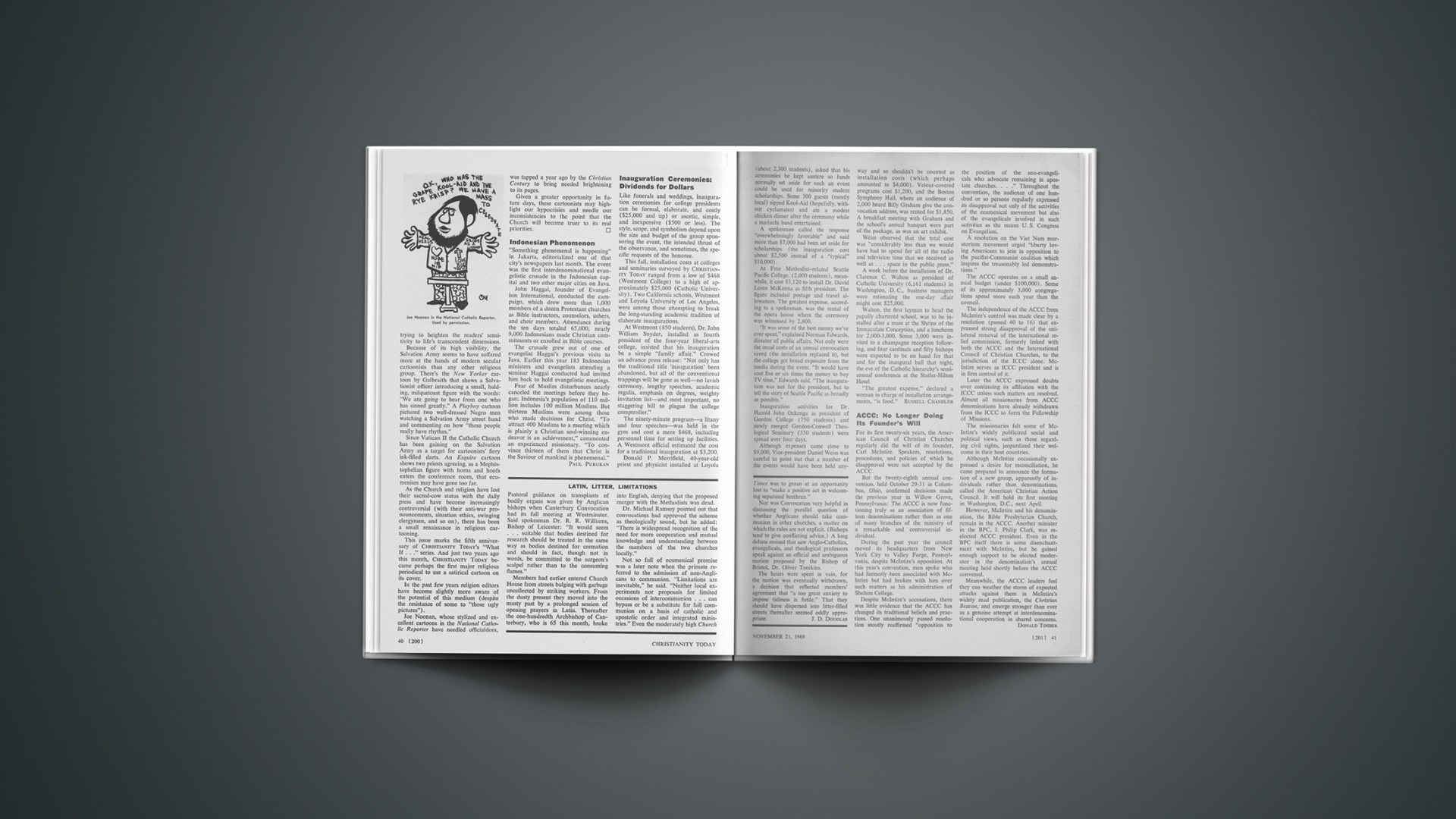For its first twenty-six years, the American Council of Christian Churches regularly did the will of its founder, Carl McIntire. Speakers, resolutions, procedures, and policies of which he disapproved were not accepted by the ACCC.
But the twenty-eighth annual convention, held October 29–31 in Columbus, Ohio, confirmed decisions made the previous year in Willow Grove, Pennsylvania: The ACCC is now functioning truly as an association of fifteen denominations rather than as one of many branches of the ministry of a remarkable and controversial individual.
During the past year the council moved its headquarters from New York City to Valley Forge, Pennsylvania, despite McIntire’s opposition. At this year’s convention, men spoke who had formerly been associated with McIntire but had broken with him over such matters as his administration of Shelton College.
Despite McIntire’s accusations, there was little evidence that the ACCC has changed its traditional beliefs and practices. One unanimously passed resolution stoutly reaffirmed “opposition to the position of the neo-evangelicals who advocate remaining in apostate churches.…” Throughout the convention, the audience of one hundred or so persons regularly expressed its disapproval not only of the activities of the ecumenical movement but also of the evangelicals involved in such activities as the recent U. S. Congress on Evangelism.
A resolution on the Viet Nam moratorium movement urged “liberty loving Americans to join in opposition to the pacifist-Communist coalition which inspires the treasonably led demonstrations.”
The ACCC operates on a small annual budget (under $100,000). Some of its approximately 3,000 congregations spend more each year than the council.
The independence of the ACCC from McIntire’s control was made clear by a resolution (passed 40 to 16) that expressed strong disapproval of the unilateral removal of the international relief commission, formerly linked with both the ACCC and the International Council of Christian Churches, to the jurisdiction of the ICCC alone. McIntire serves as ICCC president and is in firm control of it.
Later the ACCC expressed doubts over continuing its affiliation with the ICCC unless such matters are resolved. Almost all missionaries from ACCC denominations have already withdrawn from the ICCC to form the Fellowship of Missions.
The missionaries felt some of McIntire’s widely publicized social and political views, such as those regarding civil rights, jeopardized their welcome in their host countries.
Although McIntire occasionally expressed a desire for reconciliation, he came prepared to announce the formation of a new group, apparently of individuals rather than denominations, called the American Christian Action Council. It will hold its first meeting in Washington, D.C., next April.
However, McIntire and his denomination, the Bible Presbyterian Church, remain in the ACCC. Another minister in the BPC, J. Philip Clark, was reelected ACCC president. Even in the BPC itself there is some disenchantment with McIntire, but he gained enough support to be elected moderator in the denomination’s annual meeting held shortly before the ACCC convened.
Meanwhile, the ACCC leaders feel they can weather the storm of expected attacks against them in McIntire’s widely read publication, the Christian Beacon, and emerge stronger than ever as a genuine attempt at interdenominational cooperation in shared concerns.
DONALD TINDER










